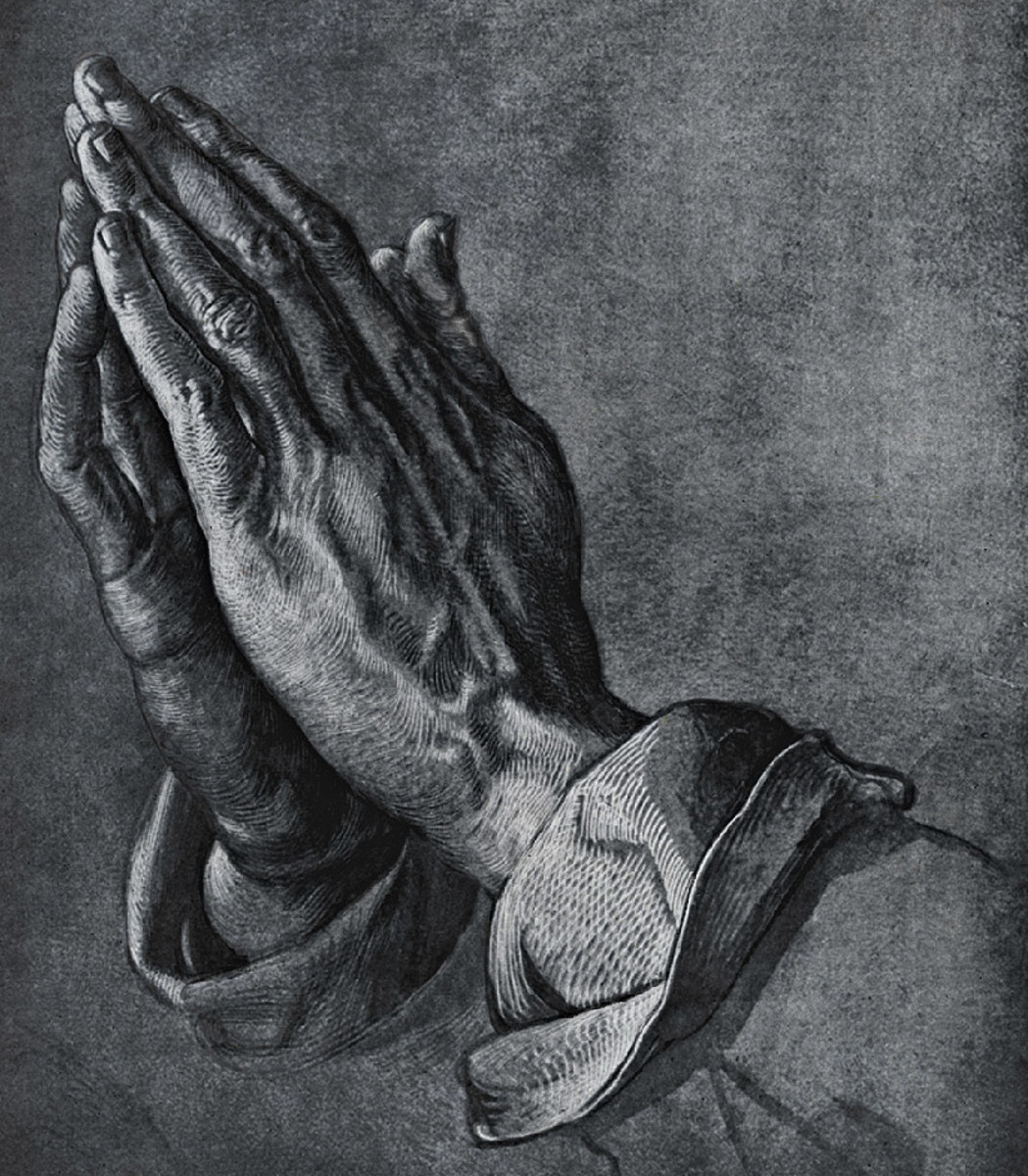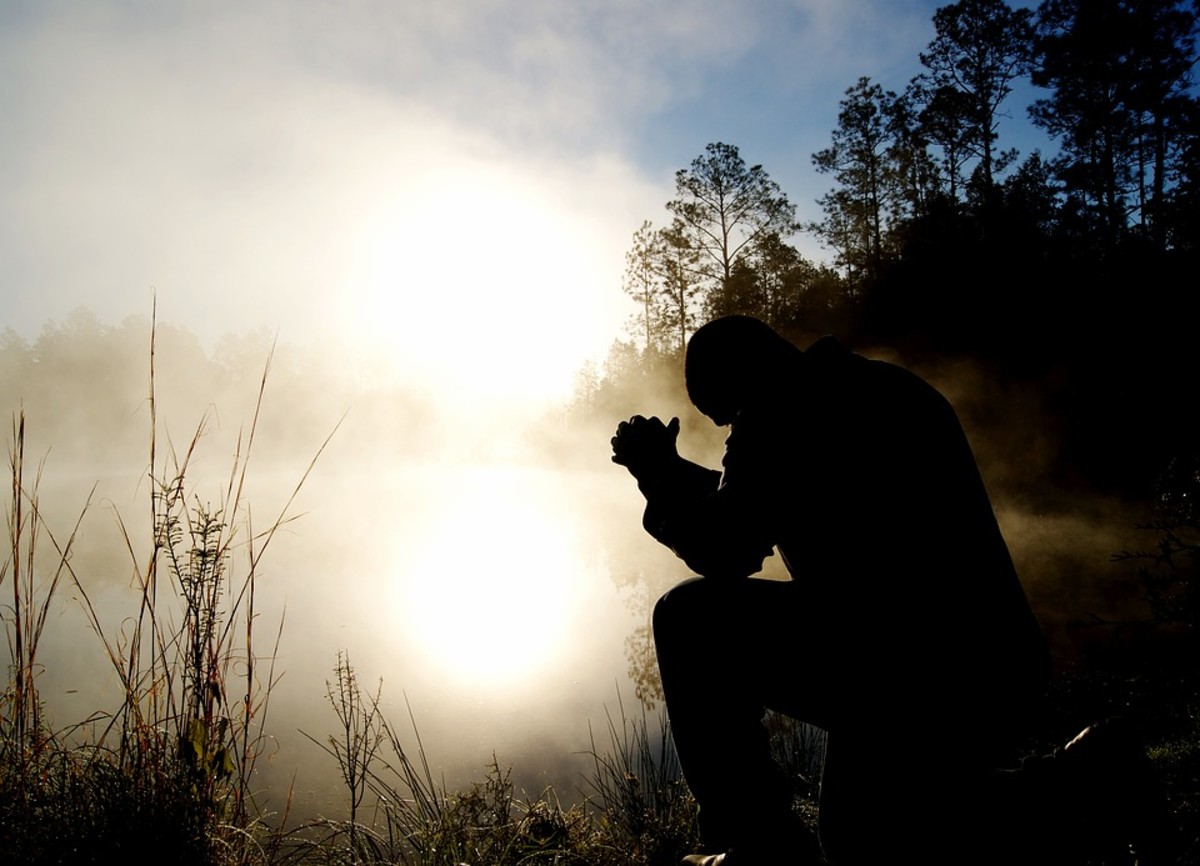Interviewing "Prayer" - When Should We Pray?

Review
So far we have looked at three questions about prayer, "What is Prayer?," "Why does prayer matter?," and "Where should we pray?"
In looking at what is prayer we found two ways the Bible defines prayer for us. The first is as a memorial or a remembrance of what God has done; not for God to remember but us to remember. The second was as incense before God's throne. We looked at the very specific rules God set down for the use of incense in the Old Testament, the formula given was not allowed to be used for personal use, the incense had to burn 24 hours a day, 7 days a week, and we even saw how God took the lives of two men who offered burned incense that was not done the way God required it, and indication that the attitude of the offer-er is more important that the offering.
Next we looked at the question "Why does prayer matter?" and we found three reason that prayer matters. First, we are commanded to pray, so it is an act of obedience to God. A second reason was because God is near us when we pray (Deu 4:7). Lastly, Jesus said to "watch and pray so that you will not fall into temptation," so prayer is a defense against giving into the temptations we all face.
Last week we looked at the question, "Where should we pray?" We discussed whether our location affects God's ability to hear us pray and found that it did not. We focused Matthew 6:6 where Jesus said to "go into your room, close the door and pray..." and asked if that meant that we should only pray in private. We saw that Jesus many time went off alone, without even His disciples to pray. We also saw that on some occasions He did pray in public and looked at the differences in the prayer times. We also read a portion of the prayers of Jesus in Gethsemane as an example of a private prayer time Jesus had. What we determined was that we all need to set aside time that is only dedicated to God and nothing else, where we are able to be open and transparent with Him and when God is able to truly reveal His heart to us. It again is more about our attitude in approaching God than our location, but if we really want to know God's heart, we have to give Him our full attention.
When Should we Pray?
So let's start out with that question for this this week, When should we pray? What do you think? (please comment below)
Continually
I am sure this is one of the first things that came to your mind. After all it has been mentioned for three weeks now. We have talked about it already, so let's look at the verse we have used so often before.
1 Thessalonians 5:17 NIV (17) pray continually;
Now, let me ask a few question of you to see if we can understand this verse more thoroughly. This is going to seem a bit like an English lesson so hang on here OK?
- In this sentence what is the subject? (You)
- What is the verb/action? (pray)
- And what does the work "continually" refer to or modify in this sentence? (modifies pray)
Let's look at the original language here to try to understand this verse better. In the original Greek, this verse only has two Greek word also.
Pray
G4336
προσεύχομαι
proseuchomai
pros-yoo'-khom-ahee
From G4314 and G2172; to pray to God, that is, supplicate, worship: - pray (X earnestly, for), make prayer.
supplicate \SUP-luh-kayt\, intransitive verb:
1. To make a humble and earnest petition; to pray humbly.
G5737
Tense-Present- The present tense represents a simple statement of fact or reality viewed as occurring in actual time
Voice-Middle or Passive Deponent (Active) - The active voice represents the subject as the doer or performer of the action
Mood -Imperative - The imperative mood corresponds to the English imperative, and expresses a command to the hearer to perform a certain action by the order and authority of the one commanding. Thus, Jesus' phrase, "Repent ye, and believe the gospel" Mr 1:15 is not at all an "invitation, " but an absolute command requiring full obedience on the part of all hearers.
Continually
G89
ἀδιαλείπτως
adialeiptōs
ad-ee-al-ipe'-toce
Adverb from G88; uninterruptedly, that is, without omission (on an appropriate occasion): - without ceasing.
Ok, so let's go through this verse slowly and deliberately. Now who is the subject of this verse? You, that is you and me, the person the speaker is talking to. What is the verb/action of the verse? Pray, and how is it stated? As a command requiring obedience. The last word modifies "pray" and what does it modify, or how is "pray" being modified in this case? By being given a time frame of without ceasing.
So to put the verse into our own "interpretation" we would say, "You and I must humbling be praying without ceasing!" Ok, so who is praying right now (and not for this class to end)? Anyone?
Let look at another verse about this to see if there is maybe a clearer understanding to be gained.
Colossians 4:2 NIV Devote yourselves to prayer, being watchful and thankful.
So let's look at the first part of the verse, "Devote yourselves to prayer." We already see the subject, you (implied), and the verb, devote, and the modifier to the verb, prayer. Let's look at the Greek again and see what it says.
Devote
G4342
προσκαρτερέω
proskartereō
pros-kar-ter-eh'-o
From G4314 and G2594; to be earnest towards, that is, (to a thing) to persevere, be constantly diligent, or (in a place) to attend assiduously all the exercises, or (to a person) to adhere closely to (as a servitor): - attend (give self) continually (upon), continue (in, instant in, with), wait on (continually).
G5720
Tense-Present - The present tense represents a simple statement of fact or reality viewed as occurring in actual time
Voice-Active - The active voice represents the subject as the doer or performer of the action
Mood -Imperative- The imperative mood corresponds to the English imperative, and expresses a command to the hearer to perform a certain action by the order and authority of the one commanding. Thus, Jesus' phrase, "Repent ye, and believe the gospel" Mr 1:15 is not at all an "invitation, " but an absolute command requiring full obedience on the part of all hearers.
Prayer
G4335
προσευχή
proseuchē
pros-yoo-khay'
From G4336; prayer (worship); by implication an oratory (chapel): - X pray earnestly, prayer.
Again we see a command (devote) to prayer. The command is to be constantly diligent in our prayer. This seem very similar to 1 Thes. It would seem that prayer is suppose to be a constant dialog with God at all times that we are not only command to do but to also be diligent in practating.
This question seems like a very simple questions, but after looking at these two verses, it looks like this prayer thing is a lot of work? I think that we can all agree that we need to always be praying, always have God on our minds, so I want to look at a more specific question. When are we instructed to pray? Specifically, are there specific times and situations what we are instructed to pray?
When are we instructed to pray?
When there is sin.
Let's talk about the biggy first. When there is sin involved, we are instructed to pray, and I see three different types of examples of sin being prayed for.
Personal Sin
I want to read just three verses about this, one may be an unusual example.
Luke 18:10-13 NIV "Two men went up to the temple to pray, one a Pharisee and the other a tax collector. (11) The Pharisee stood up and prayed about himself: 'God, I thank you that I am not like other men-robbers, evildoers, adulterers-or even like this tax collector. (12) I fast twice a week and give a tenth of all I get.' (13) "But the tax collector stood at a distance. He would not even look up to heaven, but beat his breast and said, 'God, have mercy on me, a sinner.
2 Chronicles 6:24 NIV "When your people Israel have been defeated by an enemy because they have sinned against you and when they turn back and confess your name, praying and making supplication before you in this temple,
2 Chronicles 6:26 NIV "When the heavens are shut up and there is no rain because your people have sinned against you, and when they pray toward this place and confess your name and turn from their sin because you have afflicted them,
When we have committed personal sins, we need to pray to God for forgiveness. We read in 1 John 1:8-10
1 John 1:8-10 NIV If we claim to be without sin, we deceive ourselves and the truth is not in us. (9) If we confess our sins, he is faithful and just and will forgive us our sins and purify us from all unrighteousness. (10) If we claim we have not sinned, we make him out to be a liar and his word has no place in our lives.
Failure to confess leaves the sin unforgiven, and if we try to deny it, we are lying to ourselves and actually saying by our denial that God is a lier. How many people want to call God a lier?
Group Sin
For the second prayer for sin let me ask you a question? Can a Godly person suffer because of the sins of others (his own family, group or even nation)? Let's read in Daniel.
Daniel 9:1-6 NIV In the first year of Darius son of Xerxes (a Mede by descent), who was made ruler over the Babylonian kingdom- (2) in the first year of his reign, I, Daniel, understood from the Scriptures, according to the word of the LORD given to Jeremiah the prophet, that the desolation of Jerusalem would last seventy years. (3) So I turned to the Lord God and pleaded with him in prayer and petition, in fasting, and in sackcloth and ashes. (4) I prayed to the LORD my God and confessed: "O Lord, the great and awesome God, who keeps his covenant of love with all who love him and obey his commands, (5) we have sinned and done wrong. We have been wicked and have rebelled; we have turned away from your commands and laws. (6) We have not listened to your servants the prophets, who spoke in your name to our kings, our princes and our fathers, and to all the people of the land.
Daniel 9:20 NIV While I was speaking and praying, confessing my sin and the sin of my people Israel and making my request to the LORD my God for his holy hill-
Who is Daniel praying for? Was Daniel a Godly man? Well, let's look at his early life. Daniel was taken away from Jerusalem by Nebuchadnezzar after God allowed him to attack Jerusalem. He was chosen from the others as one of the "Daniel 1:4 NIV young men without any physical defect, handsome, showing aptitude for every kind of learning, well informed, quick to understand, and qualified to serve in the king's palace..."
What did Daniel do though even after this "great honor" he had been chosen for.
Daniel 1:8 NIV But Daniel resolved not to defile himself with the royal food and wine, and he asked the chief official for permission not to defile himself this way.
Daniel chose to take a stand for what was right in God's eyes, at a young age and against a conquering foreign power. The King could have easily just had him killed because of his decision, but the Bible says:
Daniel 1:9 NIV Now God had caused the official to show favor and sympathy to Daniel,
Daniel chose to honor God and God handled the rest. Yet, Daniel prayed for sins of his people that he had not committed. I wonder how God views America and what we should do about that?
Others Sin
Lastly let's look at this verse.
1 John 5:16 NIV If anyone sees his brother commit a sin that does not lead to death, he should pray and God will give him life. I refer to those whose sin does not lead to death. There is a sin that leads to death. I am not saying that he should pray about that.
Now I am not going to try to talk about "sin that leads to death or not." I think that may be a multi-week study by itself, but look at the first part. If anyone see his brother commit a sin.... he should tell all his friends about it right? Call up the prayer chain and let everyone know what's going on, correct? Nope, what does it say, he should pray. Do you know anyone that is involved in sin? Pray for them. God loves them and they need to confess that sin, but only the Holy Spirit can bring conviction. Does that mean you should not confront them? That is really something that is between you and God. There is Biblical precedent to confront a believer when they are in sin, but that should only be done after much prayer and direction from God and frankly the pastor.
Other Times we are Instructed to Pray
I just want to look at a couple more times we have instructions to pray in the Bible.
When there's trouble
James 5:13 NIV Is any one of you in trouble? He should pray. Is anyone happy? Let him sing songs of praise.
I think this one is pretty simple actually. Are you in trouble, then pray. The word "trouble" here implies difficulties that are not of your own making. The word actually means to undergo hardship or be afflicted by something outside yourself. If you are suffering the affects of sin you need to pray also, but for forgiveness. This is a prayer to God, I believe, of simply pouring out your heart to Him and letting Him pour into you His own heart. This is like the prayer of Jesus in the Garden. Jesus was certainly troubled, and He told God He wanted to skip this trouble (let this cup pass), but ultimately He said, Not my will but your's be done. That's the prayer of the heart and life troubled by external things.
Here are some examples of prayer in a time of trouble from outside influences.
Acts 12:5 NIV So Peter was kept in prison, but the church was earnestly praying to God for him.
Acts 16:25 NIV About midnight Paul and Silas were praying and singing hymns to God, and the other prisoners were listening to them.
Acts 7:59 NIV While they were stoning him, Stephen prayed, "Lord Jesus, receive my spirit."
When thing's go good
Lastly, we need to pray when things are good also. Let's look at a story from Acts. I am going to skip around in chapters 3 and 4 just to get the outline of the story.
Acts 3:6 NIV Then Peter said, "Silver or gold I do not have, but what I have I give you. In the name of Jesus Christ of Nazareth, walk."
We all know this story, it is a favorite of mine personally, but do you remember the results of this miracle later?
Acts 4:1 NIV The priests and the captain of the temple guard and the Sadducees came up to Peter and John while they were speaking to the people.
Acts 4:3 NIV They seized Peter and John, and because it was evening, they put them in jail until the next day.
So, Peter and John were arrested for healing someone right? Well, sort of. Let me state it better this way, Peter and John were arrested because they were obedient to God and because they were obedient, God healed a crippled man. See the difference. Peter and John really did nothing except be obedient. Let's read on.
Acts 4:18-24 NIV Then they called them in again and commanded them not to speak or teach at all in the name of Jesus. (19) But Peter and John replied, "Judge for yourselves whether it is right in God's sight to obey you rather than God. (20) For we cannot help speaking about what we have seen and heard." (21) After further threats they let them go. They could not decide how to punish them, because all the people were praising God for what had happened. (22) For the man who was miraculously healed was over forty years old. (23) On their release, Peter and John went back to their own people and reported all that the chief priests and elders had said to them. (24) When they heard this, they raised their voices together in prayer to God. "Sovereign Lord," they said, "you made the heaven and the earth and the sea, and everything in them.
Now, you could say that they were praying because of the trouble they were in, but verse 21-23 says they could not decide how to punish them and let them go. There was no punishment this time. What was the peoples response to the miraculous healing of the man and the threats given by the Sadducees, prayer. Things weren't hard yet, Peter and John weren't beaten or jailed yet, the persecution had not started yet. A man had been healed and Peter and John were given a "talking to." That's all. God was moving and getting glory, and the people were praying as a result. I wonder what was God response was? Want to know?
Acts 4:31 NIV After they prayed, the place where they were meeting was shaken. And they were all filled with the Holy Spirit and spoke the word of God boldly.
It seems to me God approved of the prayer!
Closing
So, do we have an answer to When should we pray, beside "always?"
We saw three examples of times to pray.
- When sin is involved
- Ours
- A Groups
- Others
- When there is trouble that is not our fault
- When things are going good and God is being glorified
Interviewing Prayer Articles
- Interviewing "Prayer" - What is Prayer?
What is prayer? More importantly, how does the Bible define prayer. this is part one of a multiple part lesson taught in a Sunday School class where we opened the Bible and the Bible alone to ask about prayer. - Interviewing "Prayer" - Why Pray?
To Pray or not to Pray, that is the question. Why do you pray? Is that even the correct question? They say that there are no atheists in a fox hole, but is praying out of fear a good reason to pray? What then is a good "why" to pray question. - Interviewing "Prayer" - Where Should we Pray?
Jesus told us to "go into a closet to pray". What does that mean? What did Jesus give us as an example of prayer? - Interviewing Prayer - Who are we Praying to?
Who do you pray to? Seems like a simple answer right, but do you KNOW the one you pray too? Who is God?








